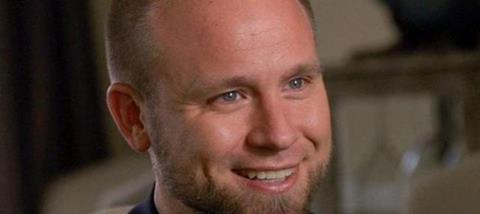
How did Christianity change the world?
The single greatest change was the concept that God loved his creation and especially human beings.
In the pre-Christian world the gods were indifferent to humanity. Indeed, sometimes the gods were jealous of humans. Humans feared the gods and tried to placate them, even bribe them.
But Christians proclaimed that “God is love” and that God sent his Son to bring reconciliation between God and humanity. Ancient pagans had never heard of such a thing. The idea that God actually loved them and was willing to send his Son to serve humanity, even die for humanity was almost incomprehensible.
How has Christ changed the overall worldview of most people in our culture?
The impact of Jesus Christ on the world is huge, probably impossible to measure fully. Thanks to Jesus most of the world now believes in one God (most of the pre-Christian world had been polytheistic).
Moreover, most of the world believes that Jesus was a very significant person, even if many do not believe in him in the way Christians do. Consequently, many of Jesus’ teachings are heeded, at least to some extent. The result is that much of the world has been Christianized to some extent and that has resulted in an enormous improvement in quality of life.
Why was a loving God, rather than a vengeful one so revolutionary?
Most pagans believed that the gods felt little or no compassion for humans. Some gods were even jealous of humans who were beautiful, gifted, or whatever. The gods of the pagans were petty, easily offended, and vengeful. Indeed, the gods were often deceitful and could not be trusted. This is why the God of Jesus, described as a heavenly Father, who loved his children, who was patient with his children when they were foolish and sinful, and who was a wholly reliable, faithful God of truth was simply mind-boggling for pagans.
Why does the Christian message of love, forgiveness and redemption matter so much?
Without forgiveness and redemption, trauma can lead to hatred and a desire for vengeance, even self-destruction.
The regimes of Hitler, Mussolini, Stalin, and Mao all had broken relationships with their fathers. They suffered traumas in childhood and youth and experienced no love and no redemption.
Why some people respond to God’s loving grace and find redemption and others do not is difficult to say. Hitler himself had a moment when a priest confronted him and challenged to abandon his evil, violent past. He was initially shaken, but then chose to ignore the pastoral warning. Hitler hardened his heart, even as Pharaoh did thousands of years ago, and then led Germany on a path that resulted in unimaginable death and destruction.
Atheism served Hitler well because without God one could easily do away with the Judeo-Christian worldview and the ethics and morals that went with it.
With God out of the picture it was easier to argue for the elimination of unwanted people, easier to justify violence, easier to justify war, easier to promote a superior race or ideology that trampled people under foot. In short, if you want to be a thug, it’s a lot easier without God muddying the waters.
You attribute social and cultural freedoms of women to Christianity, too. Why was the early church so attractive to women?
The Jewish scriptures taught that God made humans in his image. Jesus and his followers rightly inferred from this teaching that men and women were equal. Men and women may have different, complementary roles in family and public, but in the eyes of God they are equals.
Early Christians demonstrated this belief by entrusting positions of leadership to women. Gifted, educated women were permitted to speak in the Christian communities and churches and exercise leadership. The church also showed compassion to the sick, poor, and homeless. The church’s compassion and mercy attracted women, who often felt abused and unloved.
Why does our world still struggle with many of the values which Christ ingrained?
Many of the values of Christ clash with selfish worldly values. Even when the human conscience tells us that this or that is wrong, we often will do it.
Humans want to do what they want to do and they do not want any authority to say, “That is wrong.” It is a lot like discipline: The child gets angry and wants to strike out; or the child wants to eat ice cream and not his dinner. So it is with adults. We often want to do things that will hurt ourselves or others. We are all too willing to cause long-term damage for immediate gratification.
What makes Christianity unique?
Christianity is the only faith that holds the view that God himself has purchased our redemption. In no other religious thought or system do we find God or a god who suffers for humanity and in doing so brings about redemption.
All other systems teach either that we learn to accept life as it is or that we attempt to redeem ourselves. It is not a surprise that the Christian message of a loving, redeeming God has attracted 2.4 billion followers, more followers than any other faith.
Jeremiah J Johnston is president of the Christian thinkers Society and author of Unanswered: Lasting truth for trending questions and Unimaginable: What our world would be like without Christianity
Click here for a free sample copy of Premier Christianity magazine



























